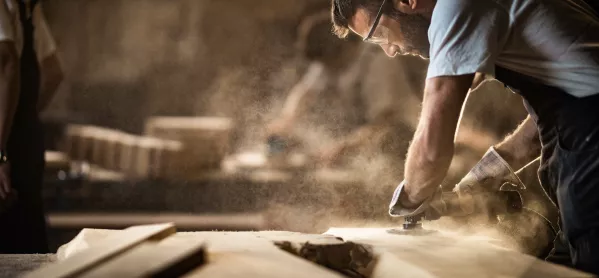I have long had a bee in my bonnet about how we assess young people’s learning, and this terrible coronavirus crisis has forced me to think hard about qualifications after this year’s exams were cancelled last month.
Through the Scottish Qualifications Authority (SQA), we almost always assess only a part of their learning: specifically, stuff they have memorised and can regurgitate under exam conditions.
There is a huge irony here: this must be the skill that is least useful in 21st-century life, given the vast store of factual information available within seconds on the web. It’s what we do with knowledge that is important now, and how we interact with it to apply it in new situations. We need skills in problem-solving, team-working, adaptability, communication and the like - yet our exam system does not assess these.
Background: SQA grilled over fairness of system replacing exams
Coronavirus: ‘Cancel next year’s exams,’ says teaching union
Opinion: ‘It’s impossible to meet the SQA grading demands’
Assessment must be more appropriate to the world today, fit for purpose and focus on skills developed and competencies therein. Society needs an education system with a brand-new form of assessment. Or does it?
Coronavirus: The chance for exam reform
My dad trained as a joiner in the 1930s and served in the Royal Navy for six years in the Second World War. As a relatively new recruit in 1940, he applied to train as a shipwright, saying that he could provide papers to prove he was a joiner.
The navy was not interested in his paper qualifications. He was told to report to a workshop full of materials, tools and machinery, where he was given a detailed drawing of a window frame. The assessment task was simple: Dad was told to make the frame.
He did so, and, having demonstrated that his skills and competence were at the required level, he was accepted to train as a shipwright. There was no written component to the test - the Royal Navy simply asked him to make something.
Maybe what society needs to do today is ask itself what it needs from the qualifications system in schools. Maybe, in turn, the education system needs to ask itself what it needs to do to prepare young people for life in our ever-changing world, focusing on skills development to ensure that it provides relevant qualifications?
My argument is that knowledge regurgitation in an exam hall is not an essential skill any more. Yet, given Dad’s experience, ironically, we might look back in time to find assessment approaches relevant to 2020 and beyond.
Harry White trained extensively in the Royal Navy, became a shipwright, deep-sea diver and a chief petty officer. On leaving the navy, he worked as a joiner for a time and then trained to be a technical teacher. He spent his time in schools getting young people skilled and into employment. But that’s another story…
Iain White is a former secondary headteacher in Scotland who now works as a leadership consultant


